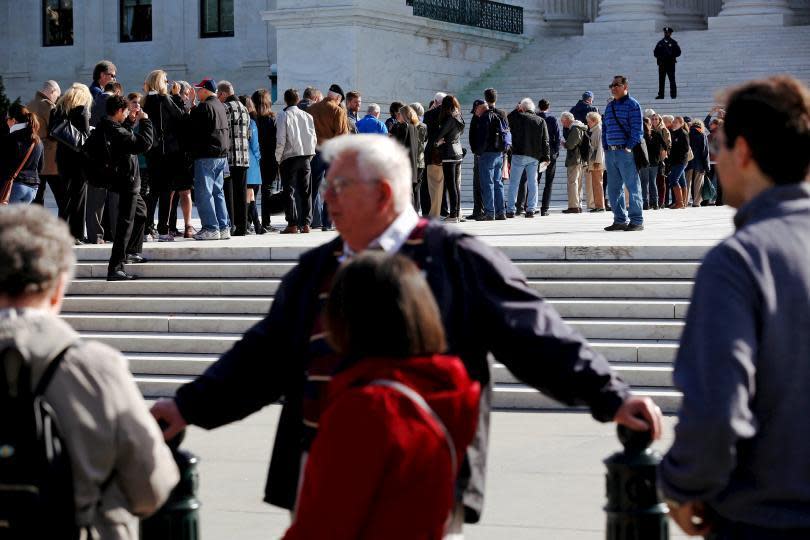The Evolution Of Affirmative Action In The US
The civil rights division of the Justice Department could be told by President Donald Trump's administration to investigate and sue universities over affirmative action admissions policies that discriminate against white applicants, it was reported Tuesday.
This is according to a document reportedly obtained by New York Times where an internal announcement was made, looking for current lawyers with an interest in working on “investigations and possible litigation related to intentional race-based discrimination in college and university admissions.”
Despite not specifying whom the Justice Department looks upon at risk of discrimination, the phrase “intentional race-based discrimination” is considered very likely pointing at programs designed to get more minority students to universities, New York Times reported.
Read: The Harvard Affirmative Action Lawsuit Of 2014
While no official announcement has been made, if the move against affirmative action in universities and colleges does go through, it could signify the law coming a full circle since first being introduced by former U.S. President John F. Kennedy in 1961. At the time of its introduction, the focus was on government contractors to "take affirmative action to ensure that applicants are employed, and employees are treated during employment, without regard to their race, creed, color, or national origin."
From government contractors, it moved on to university admissions, with ethnic minorities encouraged to apply for places even if they had not attended schools that usually sent students further up to higher education.
The concept, however, has evolved in multiple directions over the years. In the recent past, it has also been criticized for helping people based solely on the color of their skin rather than the circumstances they were in. Critics have also said affirmative action bypasses poor white students despite them too struggling to get good grades, according to the Telegraph.
Initially, however, affirmative action was brought in to enforce equality as evidenced by former President Lyndon B. Johnson’s expansion of Kennedy’s order to include women in the Civil Rights Act of 1964.
"And this is the next and the more profound stage of the battle for civil rights. We seek not just freedom, but opportunity,” Johnson later said in a speech to Howard University’s 1965 graduating class. “We seek not just legal equity, but human ability; not just equality as a right and a theory, but equality as a fact and equality as a result.”
Read: 13 Inspirational Quotes To Celebrate National Women's Equality Day

Visitors wait in line at the U.S. Supreme Court building to watch arguments on the first day of the court's new term in Washington D.C., October 5, 2015. Photo: Reuters/Jonathan Ernst
The controversy around the law, however, has been based on the idea of quotas and a limited number of admission spots or jobs for people from supposedly underrepresented groups, according to CNN.
Former President Richard Nixon had not wanted quotas either, while at the same time, pushed for more employment of minorities.
"We would not impose quotas, but would require federal contractors to show affirmative action' to meet the goals of increasing minority employment," he wrote in his memoirs.
A landmark case in 1978 even saw racial quotas ruled as unconstitutional after Allan Bakke, who was a white student, sued twice after being denied entry into a medical school. He challenged the special admissions policy in place to ensure admission from minority groups.
Read: Abigail Fisher's Affirmative Action Suit Against University Of Texas In Supreme Court
Even more recently, a white student named Abigail Fisher sued the University of Austin, Texas after being denied admission in 2008. The case spent years in federal courts before a 4-3 verdict against it in 2016, according to the Texas Tribune.
The affirmative action, however, hasn’t just been relevant to education. It’s even been an issue in politics. The 2012 Senate race for Massachusetts saw extended controversy over Democratic candidate Elizabeth Warren’s claim of having Native American heritage. It led to criticism from her opponent and incumbent Republican Sen. Scott Brown she was using it as a political advantage to win more votes.
Warren, however, was quoted by CNN at the time, saying, “Let me be clear: I never asked for or never got any benefit because of my heritage.”
Related Articles


